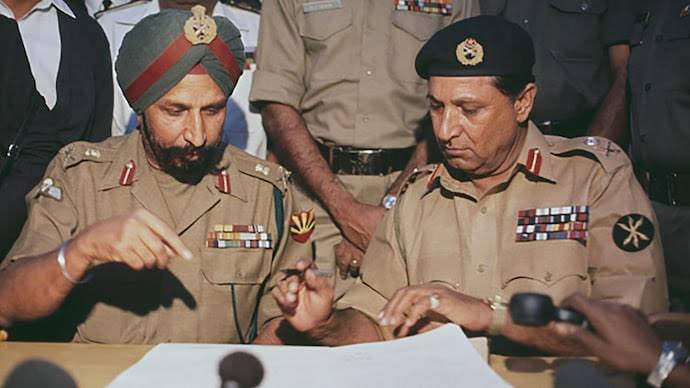Attaching a screenshot of PM Modi’s post, the minister wrote: “I strongly protest. India was merely an ally in this victory, nothing more.”
Bangladesh’s interim government Law Adviser, Asif Nazrul, has criticized Indian Prime Minister Narendra Modi’s post on X (formerly Twitter) commemorating Victory Day, asserting that “India was merely an ally in this victory, nothing more.” Victory Day, or Bijoy Dibosh, observed annually on December 16, marks the 1971 surrender of Pakistan’s military to Indian forces, leading to Bangladesh’s independence.
Read More: Switzerland Suspends Most Favoured Nation Status To India Over Nestle Ruling
Nazrul, sharing a screenshot of Modi’s post, wrote on Facebook in Bengali, “I strongly protest. December 16, 1971, is Bangladesh’s Victory Day. India was merely an ally in this victory, nothing more.” Modi’s post had honoured Indian soldiers for their courage and sacrifices in the 1971 war, calling it a “historic victory” for India and a testament to their “extraordinary valour.”
“Today, on Vijay Diwas, we pay heartfelt tributes to all the brave heroes who dutifully served India in 1971, ensuring a decisive victory. Their valour and dedication remain a source of immense pride for the nation. Their sacrifice and unwavering spirit will forever be etched in people’s hearts and our nation’s history. India salutes their courage and remembers their indomitable spirit,” PM Modi posted on social media on Monday.
Several members of the interim government echoed Nazrul’s sentiments. Chief Adviser Muhammad Yunus’s Press Secretary, Shafiqul Alam, shared Nazrul’s post, while Hasnat Abdullah, Convener of the Anti-Discrimination Student Movement, also criticized Modi’s remarks. Abdullah stated on Facebook, “This was Bangladesh’s Liberation War for independence from Pakistan. Modi’s narrative dismisses Bangladesh’s role, presenting the war as solely India’s achievement. Such claims threaten our independence, sovereignty, and identity, necessitating resistance.”
Read More: ‘Muhammad Yunus A Fascist…’: Sheikh Hasina’s Fresh Attack On Bangladesh’s Interim Leader
On the same day, Chief Adviser Yunus led the 54th Victory Day celebrations, pointedly omitting mention of founding leader Sheikh Mujibur Rahman. Yunus also criticized former Prime Minister Sheikh Hasina’s administration, branding it “the world’s worst autocratic government.”
On December 16, 1971, Pakistani forces, led by Lieutenant General A.A. Khan Niazi, formally surrendered to Indian commander Lieutenant General Jagjit Singh Aurora by signing the Instrument of Surrender. This historic event marked the end of years of oppression by West Pakistan’s regime and concluded the liberation war in East Pakistan, paving the way for the birth of Bangladesh. The surrender of 93,000 Pakistani troops symbolized the decisive victory for the allied forces of India and the Mukti Bahini, bringing an end to a brutal conflict and years of agitation in East Pakistan.

The shift in Bangladesh’s leadership stance follows the fall of Sheikh Hasina’s regime. A military-backed caretaker government assumed power after widespread anti-quota protests escalated into a massive public movement demanding her resignation. Amid the turmoil, Sheikh Hasina was compelled to seek refuge in India, marking a dramatic change in Bangladesh’s political landscape and influencing the tone of its interim leadership on key historical and diplomatic issues.





































